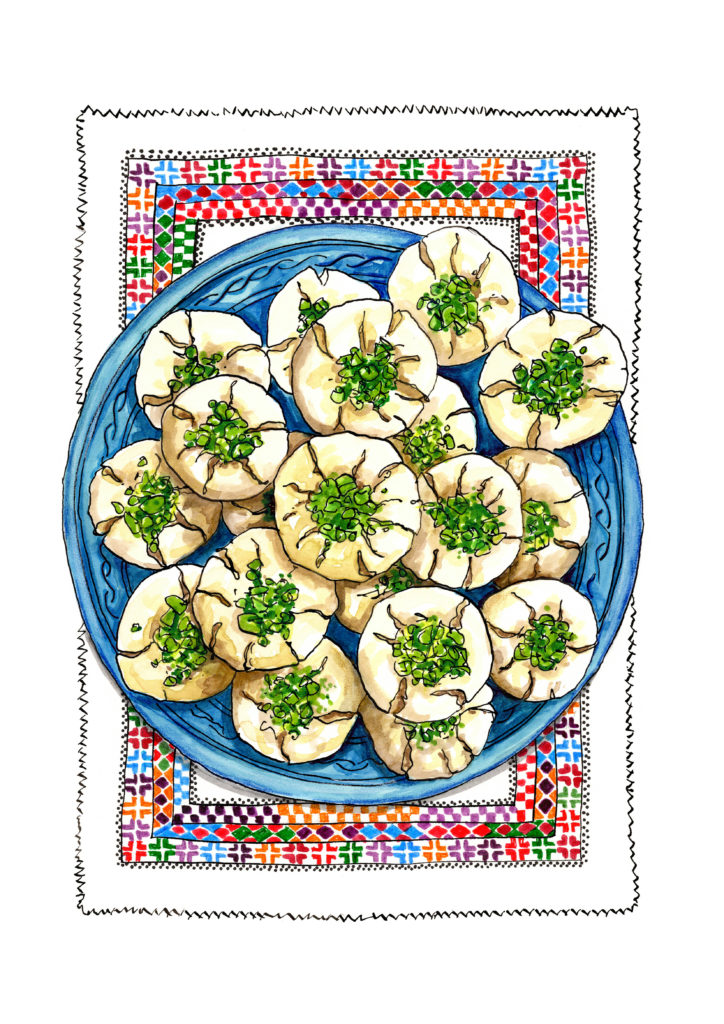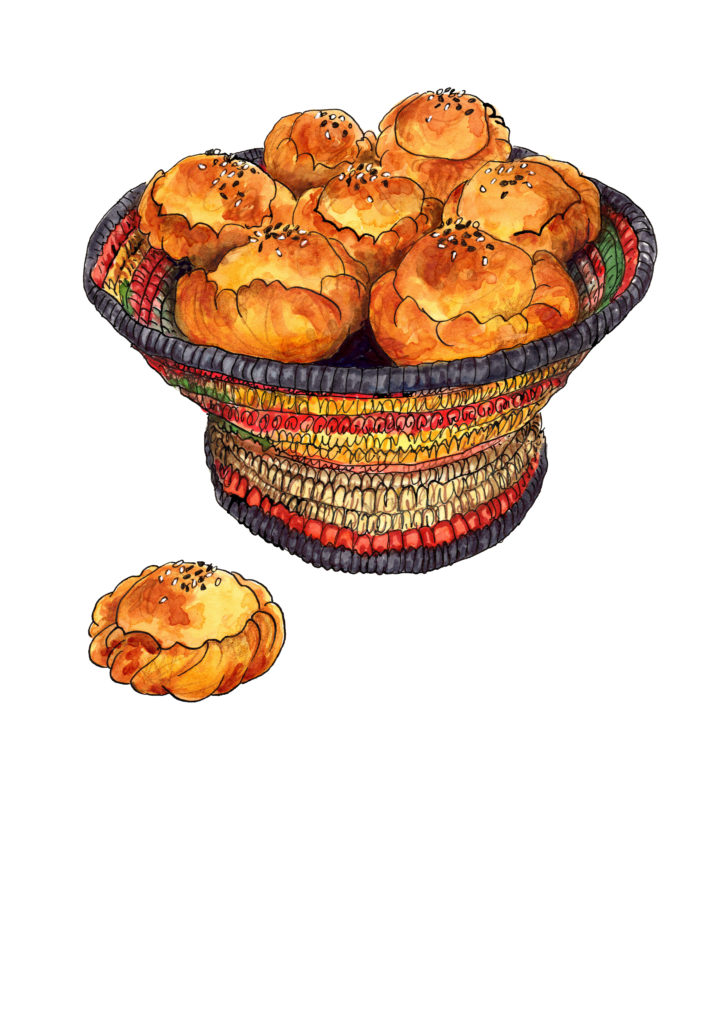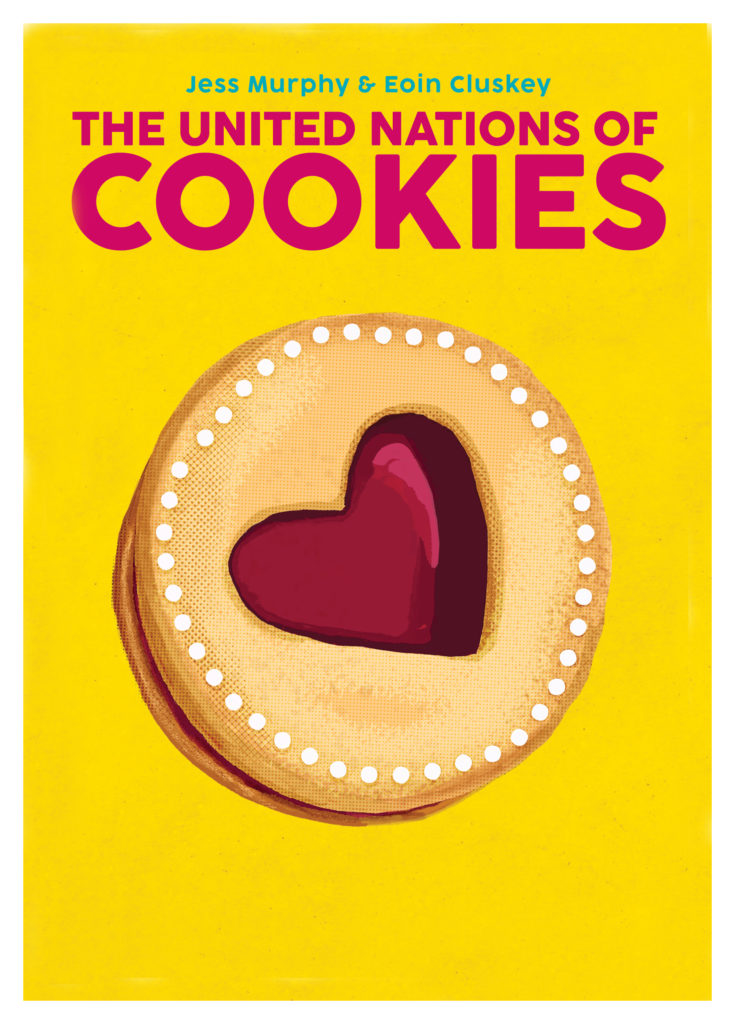Around the World in 25 Cookies
Words: Shamim de Brún
Images: Press
People can be intimidated by baking. Of all the culinary arts, it is notoriously the most fickle and scientific. No dessert comes in more flavours, textures, sizes, and shapes than cookies. Yet they are the most straightforward recipe in a baker’s repertoire, making them the kind of approachable that professionals and home cooks relish.
Biscuits
We all have nostalgic memories of biscuits. The Christmas biscuit tin, a good buttered rich tea, fighting over which snack bar was the best. Biscuits are an intrinsic part of Irish culture but are also fundamental to most cultures globally. Published by Blasta Books, Cookies, the new book by Jess Murphy of Kai Galway and Eoin Clusky of Bread 41 fame, captures this cultural ubiquity in an approachable and unpretentious way.


Cookies here are used as a symbol for the changing face of Ireland in a uniquely optimistic and delectable way. The aroma of cookies sets off something primal within us; no matter the style, they possess universal allure. The human sense of smell links directly to memory: if your ancestors made cookies for you or with you, you have a special place in your heart for them today. This can sound corny or overly sentimental, but this trope is true for many cultures across Ireland and globally.
Eoin recalls this same experience in his youth, as the featured recipe writers do. Most of the featured recipes mention parents, grandparents or extended family in their intro. Cookies are like a sweet, crunchy, chewy canvas ready for just about anything you can imagine. When you read this book, you can choose your favourite without sharing or compromising. The choice is yours. There are Polish rose jam cookies rolled into crispy blanket shapes. Or the soul-satisfying chew of melt-in-your-mouth Venetian butter cookies. There’s something to make our inner sticky-faced child as happy as we were the day we first tried a cookie made by the people who raised us.

Creativity
Cookie-making invites creativity and brings a sense of play into the kitchen. This duo exude mischievous comradery when I sit down with them on Zoom. We chat easily about the book and their journey from inception to publication and beyond. They have a lively ribbing rapport that makes you feel like they’ve spent more time together than you have with your SO.
Jess is particularly passionate about the variety. She wants people to see that variety brings joy to the word and flavour to the classic treat. This book has a cookie for every personality, predilection, mood, and motivation. If you crave something crunchy to dip into your coffee or wine—there’s a biscotti to satisfy you. If you want gooey or seductive, oozing with chocolate or caramel—from jammy dodgers to chilli and coriander, your options are endless. Soft and cakey, chewy or flakey, spicy with ginger, or tangy with lemon: there are cookies for all these cravings and countless more.
Diversity
Jess excitedly expects Ireland to become as culturally diverse a mecca as her book. She said, “Ireland’s gonna be one big, tasty country by the time this generation grows up. We are already seeing it on the food scene, with Takashi Miyazaki and Ahmet Dede”. Both of whom are well-established chefs in Ireland.


Takashi is the owner of Miyazaki and Michelin-starred Ichigo Ichie in Cork, and Ahmet Dede is the creative chef behind Baltimore’s Dede, which received a Michelin Star in its first year. Each of these chefs cut their teeth on Irish soil and has not only made Ireland their home but are every day passing on their knowledge and skills to the next generation of chefs who work with them. It’s a knock-on and building effect that can not be denied and should not be ignored. In Cookies, Jess and Eoin celebrate this by getting classic treat recipes from this calibre of master chef.
Family
They don’t, however, limit themselves here to chef expert-level recipes. Instead, this duo deftly weaves these treats into a canvas with family recipes, which is no mean feat. Family recipes can be viewed as sacred by many. More heavily guarded than the coke recipe.
As Eoin points out, “even though something is from a particular region, it doesn’t mean everyone cooks it that way and makes it that way.” Recipes vary from family to family and even generation to generation. Which means you, as the reader, feel safe enough to play and pull apart the bits you like here.
This book has a joy hidden in plain sight: many Irish people will see themselves represented here. I gave my copy to our social media intern Aiesha Wong to pick which recipe we would make together. Her eyes widened with joy when she saw the Malaysian recipe from Shamzuri Hanifa, and she put her hand to her heart, exclaiming “my culture” in a vibrant and infectious way. This is the kind of warmth that representation brings.
While not all the recipes could make it into the seventy-two-page collectable book, they endeavoured to keep all of the family recipes. But they had to ban Baklava, stating it was demonstrably not a cookie, despite what some may claim.

The road to the book was paved through Jess and Eoin’s work and collaboration, but it wasn’t without its bumps. Not every family understood how recipes would need to be recorded in order to publish them, with some baking by eye. This skill is often beyond many home cooks and hard to transcribe linguistically. Fortunately, the eagle-eyed besties forged more concrete versions of these for us.
Story
Jess tells a wild story about a family being brought into Bread 41 while Eoin was away at an engagement party. As was their custom, the family began filling the room with frankincense and Jess with a palpable fear of setting off the fire alarm. Luckily she somehow managed to wrangle the burning incense in, and fire alarms marred no one’s big day.
You can’t tell this book’s story without Jess’s journey to Beirut to meet a displaced Syrian family who had just found out that Ireland was to be their home. I can not understate the danger of that trip. That family had been living with so many bombs, blackouts, and warfare that Jess had to be ferried to them in a four-truck vital envoy with the UN. Yet, the Syrian represents so much more than a treat. It is a survival story and family history baked into a bite-sized lump of joy. Reading about it, you can almost taste the delight of hearing your family will have a home to go to. And that is something only food can do.
Making the recipes in this book brings the reader on journey after journey in a tangible yet transient way. It’s a book not only worth reading but worth sharing.

The book is available for fifteen euros nationwide now. PS – If you are a gluten-free-er, then fear not. Pastry chef and jam lover Tara Gartlan of Chapter One is mid quest to transpose as many of the recipes as possible into a Gluten Free key.
Elsewhere on CHAR: The Enduring Appeal of a Burger and Chips

